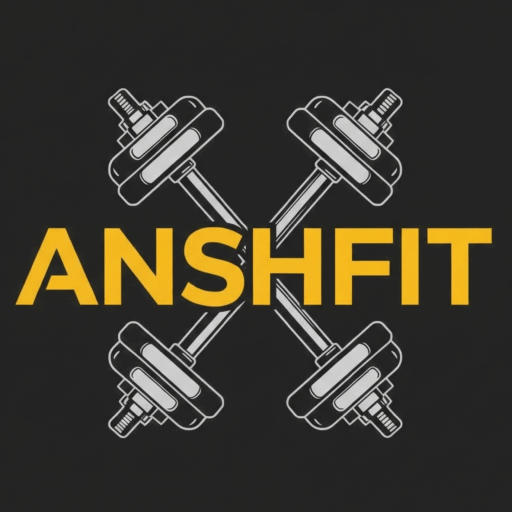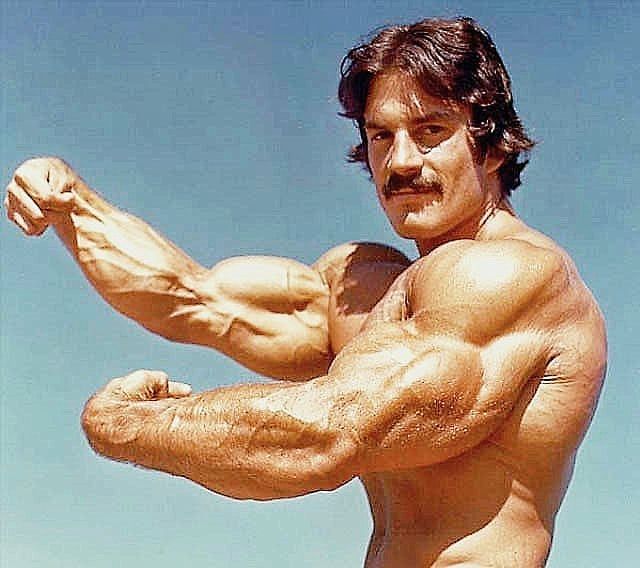Overtraining Ruins Gains — Under-Recovery Ruins Them Faster

Welcome to AnshFit, where the wisdom of legendary bodybuilder Mike Mentzer meets practical fitness for the modern lifter. Today, we address a misunderstood and often overlooked enemy of progress: under-recovery. If you think overtraining is the biggest problem holding you back, think again — because under-recovery is often the real culprit. We often misunderstand how fast muscle recovery can be, after a workout session.
Let’s dive deep into this crucial topic, backed by Mentzer’s Heavy Duty training philosophy.
The Truth About Overtraining – How fast muscle recovery really is?

“Overtraining” gets thrown around like a buzzword in the fitness world, but most people misunderstand it. It’s not just about training too much — it’s about training too much without allowing enough recovery.
Mike Mentzer put it bluntly:
“Progress is not made by training more frequently — progress is made by training, recovering, and then training again once full recovery has occurred.”
So what is overtraining, really?
It’s a state of chronic fatigue, muscle loss, and nervous system burnout caused by training too intensely, too often, with too little rest.
Signs of overtraining include:
- Decreased strength and endurance
- Constant soreness and lack of motivation
- Trouble sleeping
- Elevated resting heart rate
- Frequent illness or injuries
- Zero gains despite high effort
Under-Recovery: The Silent Killer of Progress – How fast muscle recovery really is?
Overtraining might grab the headlines, but under-recovery is the stealthier destroyer of gains. You can train with perfect intensity, use flawless form, and log your workouts — but if you don’t recover adequately, your muscles will never rebuild.
Here’s where Mentzer’s brilliance shines:
He taught that recovery isn’t a passive process — it’s the foundation of growth.
“It’s not the training that produces growth — it’s the recovery from training.”
Under-recovery happens when:
- You don’t sleep enough
- You neglect protein and overall nutrition
- You train again before your muscles have fully repaired
- You’re mentally burned out but still pushing
- You underestimate how taxing high-intensity training truly is
The HIT Cycle: Stimulus → Recovery → Growth
Mike Mentzer’s Heavy Duty Training wasn’t just about going to failure — it was about doing just enough to stimulate growth, then backing off to allow full recovery before training again.
This is especially important if you follow Mike’s Heavy Duty routine (which we’ve already covered in-depth here) 👉 https://anshfit.com/best-workout-routine-for-muscle-gain/.
Let’s break down the true growth cycle:
- STIMULUS: One intense, brief, well-executed session — not five mediocre ones.
- RECOVERY: Sleep, nutrition, rest, mental clarity, hormonal balance.
- OVERCOMPENSATION (GROWTH): The body responds by building more muscle than it had before — but only if recovery was complete.
Training before full recovery breaks this cycle — and leads to stagnation or regression.
More Training ≠ More Gains – How fast muscle recovery really is?

This modern obsession with “grind” culture — training 6 or 7 days a week, double splits, fasted cardio, etc. — goes directly against the science of muscle hypertrophy.
Mike Mentzer warned about this:
“The belief that more training equals more progress is not only false — it’s dangerous.”
In fact, Mentzer often trained once every 4 to 7 days, depending on recovery speed, and reported better gains than during his high-frequency training days.
The Psychological Trap of Overtraining – How fast muscle recovery really is?

A huge aspect Mentzer focused on was the mental strain. When you don’t recover, your mind dulls. Focus fades. You become a robot — checking off workouts, yet feeling empty.
Under-recovery:
- Increases irritability
- Kills motivation
- Leads to irrational decisions like “maybe I should add more sets”
- Feeds insecurity
But when you’re rested, recovered, and recharged, your confidence soars, and so do your lifts.
How to Maximize Recovery — the AnshFit Way

Recovery is not complicated, but it must be intentional. Here’s how to dominate your recovery game:
1. Prioritize Sleep Like You Do Training
- 7–9 hours per night minimum
- Deep sleep is where growth hormone release peaks
2. Eat for Growth, Not Just Cleanliness
- 1.6–2.2g protein per kg of bodyweight
- Include healthy fats, complex carbs, and electrolytes
- Use post-workout shakes to jumpstart repair
3. Space Out Training Sessions
- HIT-style: Train no more than 2–3 times per week
- Listen to your body, not just your schedule
4. Reduce Stress & Mental Fatigue
- Meditation, nature walks, or just being alone in silence
- Lower cortisol = better muscle growth
5. Hydrate Constantly
- Muscles are 70% water
- Dehydration slows recovery and performance
💬 Mentzer’s Final Word on Recovery – How fast muscle recovery really is?

Mike Mentzer famously said:
“If you haven’t fully recovered from your last workout — you have no business being in the gym again.”
This isn’t laziness — this is intelligence. At AnshFit, we honor smart training and smarter recovery. We believe that true strength isn’t in the grind — it’s in knowing when to push and when to pause.
🏁 Final Takeaway
Overtraining ruins your progress — but under-recovery guarantees it.
Don’t just work hard — recover hard.
Train like Mentzer:
- Briefly
- Intensely
- Infrequently
And live like a champion:
- Sleep deeply
- Eat purposefully
- Recover fully
Let your muscles grow in peace — not in panic.
Stay connected with AnshFit
Every week, we bring you raw, real, and result-driven insights rooted in Mentzer’s unmatched wisdom. If you’re ready to train with purpose and recover with power — you’re in the right place.
Subscribe, share, and train smart. The AnshFit way.


